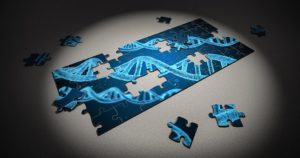 We hosted a dinner on PARP Inhibitors recently. PARP Inhibitors are a class of medications that may have benefits in Triple Negative and other Breast Cancers in women with a BRCA mutation. Homologous Recombination Deficiencies are associated with several cancers, including breast cancer, and can be identified in breast cancer tissue itself. Tumors with a homologous recombination deficiency (including BRCA mutations) are described as HRD-positive.
We hosted a dinner on PARP Inhibitors recently. PARP Inhibitors are a class of medications that may have benefits in Triple Negative and other Breast Cancers in women with a BRCA mutation. Homologous Recombination Deficiencies are associated with several cancers, including breast cancer, and can be identified in breast cancer tissue itself. Tumors with a homologous recombination deficiency (including BRCA mutations) are described as HRD-positive.
When PARP-Inhibitors were introduced as a new class of drugs for the treatment of breast cancer in 2013, we were excited about the potentially life-saving benefits for patients with Triple Negative Breast Cancer.
At the time, we explained how PARP-Inhibitors, or PARP-I, were designed to affect DNA and BRCA mutations. DNA is basically a blueprint for our bodies. Molecules read the DNA and then make the various parts and proteins of our bodies. If the DNA gets broken, then our cells cannot produce what we need and those cells usually die.
The cells that survive will either have an oncogene or a tumor suppressor gene, and these cells will grow uncontrollably and become cancer, most often in breast and ovarian cells. However, there are two ways our cells can fix broken DNA. The first mechanism is the BRCA pathway.
BRCA is a collection of DNA, which is a healthy gene that everyone has in every cell. BRCA has a protein that fixes, or repairs, DNA that is broken. If the BRCA gene is abnormal, which many people understand as BRCA1 and BRCA2, then broken DNA does not get fixed.
Which brings us back to PARP. If the BRCA pathway is broken, then the cell uses another pathway, the PARP (poly ADP ribose polymerase) pathway, to fix the broken DNA. So, if the BRCA cells are abnormal, their DNA can be repaired by PARP so that they can survive and grow uncontrollably, becoming cancer. But if we can inhibit PARP, i.e. use a PARP-I, then an abnormal BRCA cell that might have become cancer cannot repair its DNA and dies.
When introduced six years ago, PARP-Inhibitors had shown effectiveness against Triple Negative Breast Cancers in patients who carry an abnormal BRCA gene in clinical trials. Triple Negative Cancers can be very difficult to kill. But for patients with Triple Negative Cancer and who have a BRCA gene mutation, PARP-Inhibitors may lead to a significant improval in survival.
BRCA, HRD, and PARP-I
Emerging evidence suggests that a significant proportion of patients with BRCA1/BRCA2 type breast cancer are also have what’s called homologous recombination deficiency (HRD).
HRD is associated with several cancers, including breast and ovarian cancers. Homologous recombination is another DNA repair pathway, so cells that are deficient in homologous recombination may be targeted by PARP inhibitors.
The future is brighter every day, and many dedicated scientists and physicians are searching and studying and experimenting for a cure, every day of every month.
If you’d like to discuss the most successful surgical treatments for breast cancer, I am happy to consult with you. Or, if you’ve recently been diagnosed with breast cancer or are wondering if you should seek a second opinion on your diagnosis or surgical plan, I am also happy to consult with you. I have an office at Tennova Turkey Creek in West Knoxville and an office adjacent to Tennova North Knoxville Medical Center just off of Emory Road in Powell.
My extensive research and dedication to continual learning have distinguished me as a leader in the field of specialized breast cancer oncology. To learn more about my compassionate surgical care approach, visit www.aaronmd.com or call (865) 692-1610.